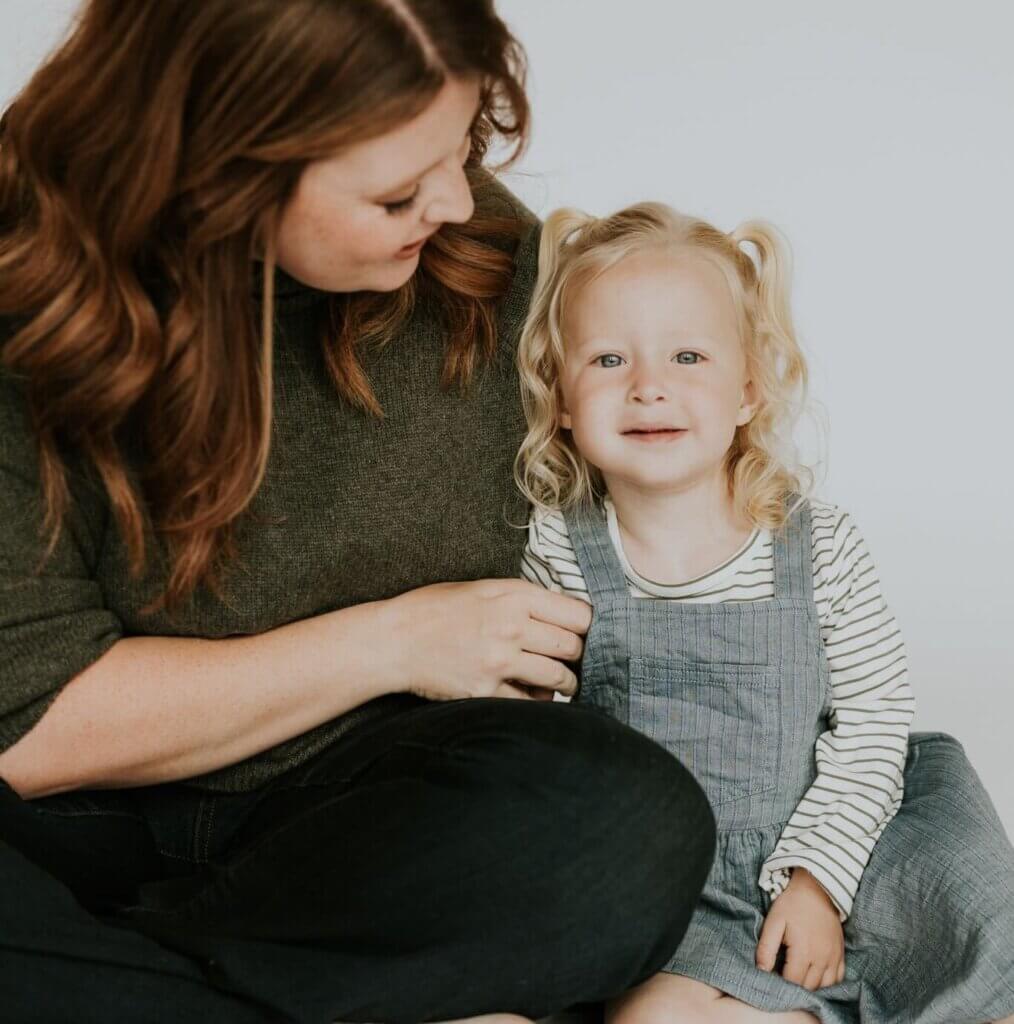A birth story with a positive outcome, from difficult beginnings. How to support yourself when your birth doesn’t go as planned.
We all have dreams of what becoming a first-time parent might look like – but what happens when reality doesn’t match the vision? When I imagined giving birth to my daughter, I thought about my carefully crafted birth plan, those tender first moments we’d share, and how life would be forever changed by this tiny human who was half me and half my husband. I was anxious, yes, but also overjoyed. I had always wanted to be a mom, and it was finally happening.
But three weeks before her birth, everything changed…
At 36 weeks pregnant, we learned that our daughter would be born with four complex congenital heart defects. She would need heart surgery within her first week of life and more surgeries in the years to follow. In a matter of minutes, every expectation I had about birth and new motherhood vanished. Suddenly I was meeting with a high-risk OB, touring a different hospital equipped for her care, and willing her to survive.
When she arrived, we had only a few precious moments together before she was whisked away to the NICU – intubated and prepped for her first heart surgery.
So how do you bridge that painful gap between expectation and reality – especially in the raw, chaotic days after birth? It’s a question I return to often in conversations with other medical parents. There’s no perfect path forward but here are a few things that helped me hold onto my mental and emotional well-being during those earliest days:
1. Trust that you are the expert on your baby.
There will be moments when you feel completely powerless but don’t forget that you know your baby. You’re not “just the parent.” You’re their voice. Your knowledge of them and their nuances is truly irreplaceable.
2. Ask questions – then ask more.
There’s a steep learning curve when you’re suddenly navigating the healthcare system. Don’t hesitate to ask for clarification, explanations, or support. Your questions matter, and the answers will help you feel more grounded in a system that can feel overwhelming.
3. Find your outlet.
Processing your trauma and grief looks different for everyone. For me, it was writing. For you, it might be taking walks, talking to your partner, or just allowing yourself a quiet moment to breathe. However you process, honor it.
4. Let yourself love with your whole heart.
In those early days, I found myself afraid to fully connect – forever haunted by the “what ifs.” But I’ve learned that love is never wasted. If anything, it’s the very thing that sustained me. Don’t hold back. Your baby deserves every ounce of love you have to give, and so do you.
Looking back, nothing about those first weeks of motherhood felt “normal.” I didn’t get the quiet recovery time, the newborn snuggles, or the proud trip home from the hospital. I got medical rounds, surgical updates, and long hours sitting beside a hospital crib. As a nurse practitioner, I wasn’t intimidated by the medical language, but being the parent in that room was an entirely different kind of vulnerability. I had to figure out how to process my own emotions while still making decisions, showing up, and staying present. And that’s what I’d tell any new medical parent: it’s okay if it feels overwhelming. You don’t have to do it perfectly. Just keep showing up in the ways you can – that’s more than enough.
ABOUT THE AUTHOR
Sarah Michelle Boes, MSN, APRN, FNP-BC, is the Founder of Sarah Michelle NP Reviews and also served as the Chief Nursing Officer at Blueprint Test Prep. Sarah’s entrepreneurial journey is deeply intertwined with her personal life. Her daughter Meadow, born with severe heart defects, has required extensive medical care, inspiring Sarah’s commitment to pediatric cardiac research and care. In recognition of Meadow’s journey, Sarah has become a congenital heart disease activist and philanthropist. She serves on the boards of several non-profit organizations that support and advocate for this cause. You can also follow Sara on Instagram, LinkedIn, and visit her Podcast.
Images provided by Sarah Michelle Boes

